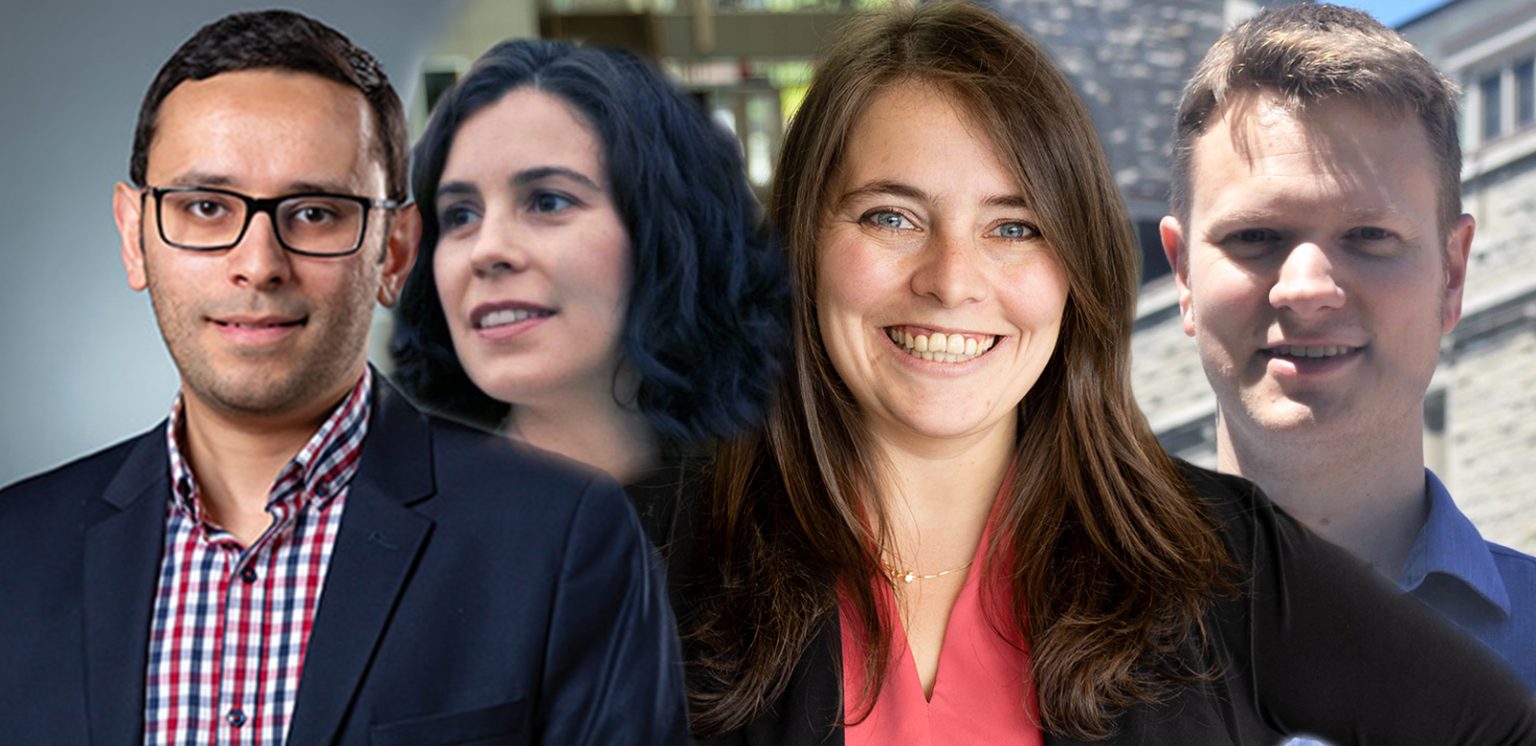The School of Engineering welcomes four new faculty on July 1. The new research faculty bring a wealth of experience in digital health, smart structures, smart transportation, and microbial ecosystems.

“Not only do our new faculty bring an impressive breadth of research that complements our existing research clusters, but they bring a passion for innovation and changing our world for the better,” says School of Engineering Executive Associate Dean Rehan Sadiq.
Dr. Lisa Tobber, has been appointed a UBC Okanagan Principal Research Chair (PRC – Tier 2) for Women in Engineering. She is an expert in developing innovative structural systems for tall buildings that can withstand catastrophic events. Dr. Tobber uses advanced numerical simulations and large-scale experimental testing to help design resilient, sustainable, and smart cities. She is a UBC Civil Engineering alumna.
In her role as PRC, Dr. Tobber will develop initiatives for engaging and retaining female students through building positive and effective relationships in engineering pedagogical and research contexts. Furthermore, she will engage in improving training of both female engineering students and female practicing engineers.
Dr. Christopher Collier joins UBC Okanagan from the University of Guelph, where he began as an assistant professor of Biomedical Engineering in 2016. At the University of Guelph, he established the Collier Research Group through funding from numerous sources including NSERC and CFI. The Collier Research Group has also moved to UBC Okanagan, bringing a research program on hyperspectral imaging, terahertz technologies, microsystems, agri-food applications, and optofluidic technologies. Dr. Collier is an alumnus of the UBC Okanagan Electrical Engineering BASc and PhD programs.
During the pandemic, Dr. Collier’s research efforts were largely focused on lab-on-a-chip systems. His agri-food microfluidic devices were featured as the cover article for the journal Electrophoresis, and his optical annealing techniques can be applied for rapid polymerase chain reaction, as is used in the detection of COVID-19.
Within anaerobic digester environments, Dr. Alyse Hawley’s research explores microbial metabolic interactions and the roles of micro-diversity (diversity within a species) and viruses that infect microbes using the tools of multi-omics (DNA, RNA and protein sequencing). Dr. Hawley uses big data to uncover ways to better understand the inner workings of natural and engineered microbial ecosystem (such as viruses). She recently completed a postdoctoral fellowship at the University of Calgary.
Dr. Suliman Gargoum develops smart sensing technology for advanced road safety analytics and informed design and management of transportation infrastructure. A former Chief Research Officer at Nektar Inc., Dr. Gargoum’s research supports transportation infrastructure projects related to digitalization, virtual transportation management, and automated LiDAR data processing. Dr. Gargoum completed his PhD at the University of Alberta.
“We are very excited to welcome our new faculty, and uncover new collaborations to seek out solutions to pressing challenges facing our community and industry partners,” says Lukas Bichler, School of Engineering Director pro tem. “They join a Faculty that continues to grow and broaden its reach in the world of engineering research and education.
All four members of faculty start July 1st as assistant professors in their respective programs.